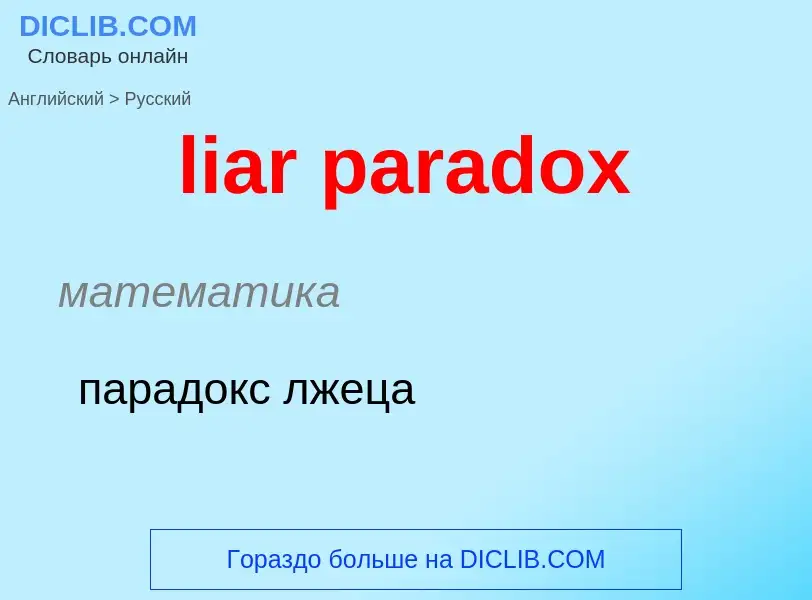Traducción y análisis de palabras por inteligencia artificial
En esta página puede obtener un análisis detallado de una palabra o frase, producido utilizando la mejor tecnología de inteligencia artificial hasta la fecha:
- cómo se usa la palabra
- frecuencia de uso
- se utiliza con más frecuencia en el habla oral o escrita
- opciones de traducción
- ejemplos de uso (varias frases con traducción)
- etimología
liar paradox - traducción al ruso
математика
парадокс лжеца
математика
парадокс при голосовании
Definición
Wikipedia
In philosophy and logic, the classical liar paradox or liar's paradox or antinomy of the liar is the statement of a liar that they are lying: for instance, declaring that "I am lying". If the liar is indeed lying, then the liar is telling the truth, which means the liar just lied. In "this sentence is a lie" the paradox is strengthened in order to make it amenable to more rigorous logical analysis. It is still generally called the "liar paradox" although abstraction is made precisely from the liar making the statement. Trying to assign to this statement, the strengthened liar, a classical binary truth value leads to a contradiction.
If "this sentence is false" is true, then it is false, but the sentence states that it is false, and if it is false, then it must be true, and so on.




